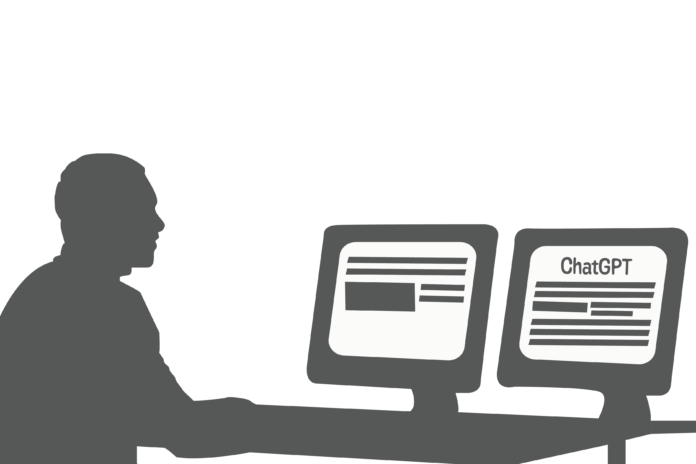Generative AI programs have the potential to destroy intellectual labor
By EMILIE BROWN — emrbrown@ucdavis.edu
This article was not written by AI. (No, seriously.)
We’ve all heard of it. The AI promise to take the work out of everything from sending emails to writing your college admissions essays to finishing your novel. ChatGPT is taking over the internet and threatening unemployment for millions.
Chat Generative Pre-trained Transformer (ChatGPT), developed by OpenAI, is a free tool that interacts with users in a conversational way and allows them to ask text-based questions. In today’s digital age, more people are turning to AI-powered tools like it to help them with their writing needs.
ChatGPT helps users do anything from translating languages, creating social media posts or writing essays quickly and with minimal effort, which explains why less than three months after its launch, ChatGPT has already had over 100 million downloads. It’s incredible; type ChatGPT into Google, download, type in anything you can think of and watch the AI eloquently spit out whatever you desire.
However, ChatGPT’s efficiency comes with many negative effects, including putting writers, coders and journalists out of work. As you can imagine, AI that can quickly produce a coherent essay, article or program threatens the people who are paid to do the same thing. It seems to me that millions of blue- and white-collar jobs are threatened by ChatGPT. AI is able to pass college-level tests in almost all fields, earn an MBA, pass the written tests to become a doctor and the Multistate Bar Exam. While most technological progress in the 21st century has replaced manual labor, ChatGPT has the potential to replace intellectual jobs in thousands of fields.
But don’t worry: ChatGPT still has some major flaws. We all know the internet isn’t perfect — there’s a plethora of misinformation, negative stereotypes and biases out there. Because ChatGPT draws and learns from the internet, it can, and often does, reuse incorrect information and show biases found online. ChatGPT’s writing isn’t perfect either. It’s missing the personality in writing only humans can provide. It has a very limited understanding of context and language, so it can be confused by common phrases.
For now, ChatGPT is a unique tool and a great example of how helpful AI can be. While it has the potential to make our lives easier, it also has the potential to make many jobs irrelevant and put millions out of work. As technologies and AIs continue to develop, it’s crucial that we carefully consider their full potential to ensure they are used in ethical ways that are beneficial to everyone.
Written by: Emilie Brown — emrbrown@ucdavis.edu
Disclaimer: The views and opinions expressed by individual columnists belong to the columnists alone and do not necessarily indicate the views and opinions held by The California Aggie.





